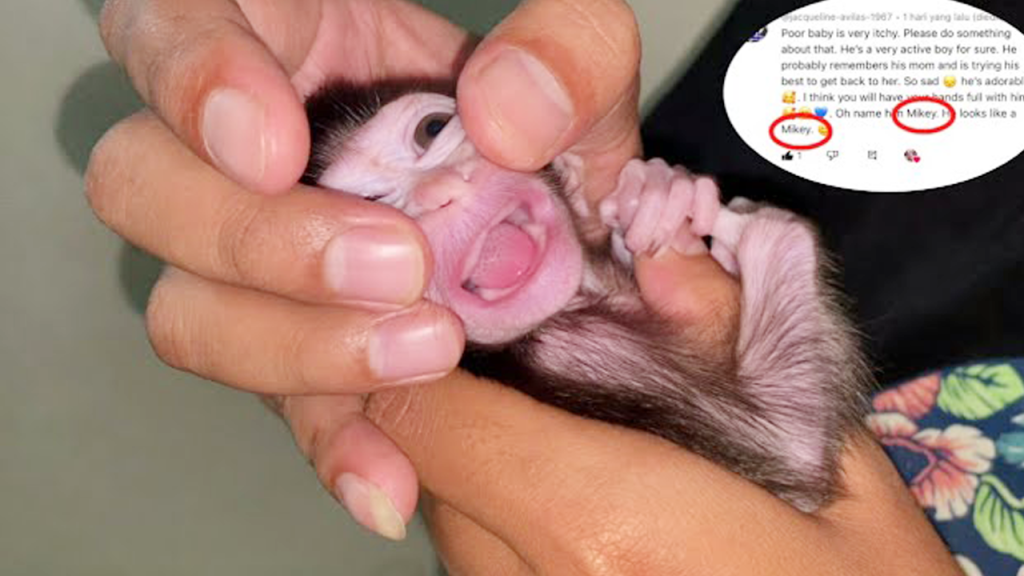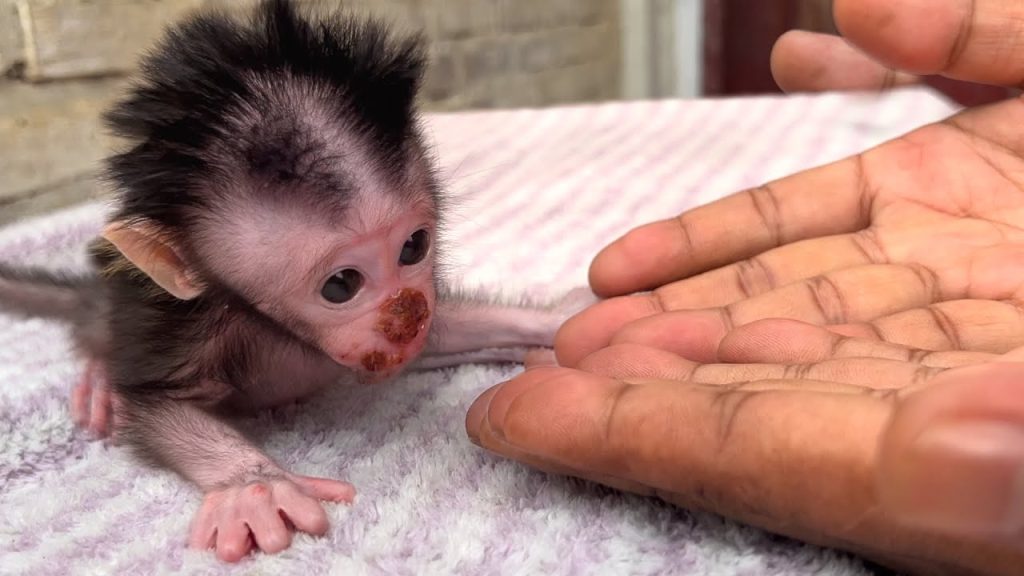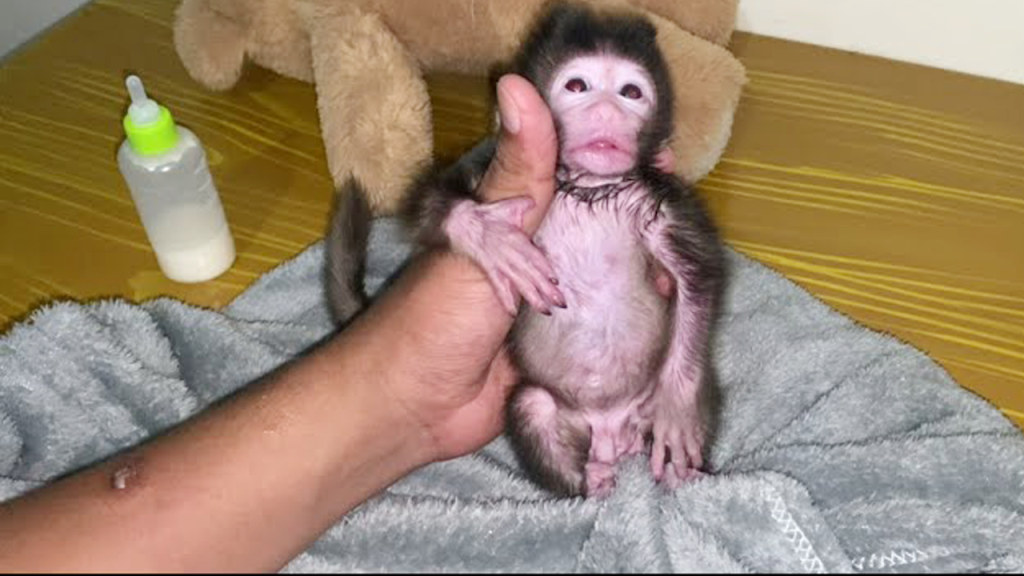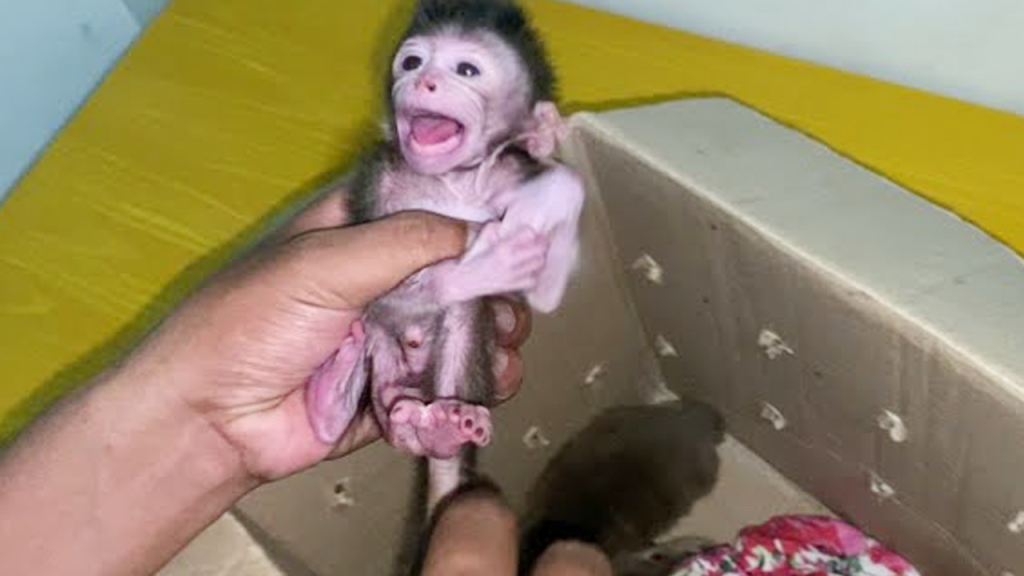
Newborn baby monkeys who often have tantrums are not misbehaving; they are simply expressing their earliest emotions in the only language they understand. Their cries, shrieks, wiggles, and sudden bursts of frustration are all natural behaviors that help them communicate their needs and discomfort. At such a young age, their world feels overwhelming, unpredictable, and full of new sensations. Every touch, sound, and temperature change can trigger an instinctive reaction, and this reaction often shows up as a tiny tantrum.
A tantrum for a newborn monkey usually begins with a sudden squeal or cry, followed by frantic movements like kicking, curling their fingers tightly, or reaching upward for comfort. These behaviors are not signs of aggression but signals of vulnerability. The smallest thing—a shift in position, a drop of water on their fur, a moment of separation—can feel incredibly intense. Their young nervous systems are still developing, so they respond strongly to even minor sensations.
Bath time is one of the most common moments for tantrums. The unexpected splash of warm or cool water, the strange feeling of being lifted, or the sound of dripping liquid is enough to make a newborn monkey panic. They tighten their bodies, cry loudly, and cling desperately to anything that feels secure. This is their survival instinct at work: loud cries attract attention from caregivers, helping them stay safe.
Feeding time can also trigger tantrums. When a newborn monkey is very hungry, waiting even a few seconds for milk feels unbearable. They shake their hands, squeal urgently, and sometimes push away the bottle in frustration even though they want it. Only when the nipple reaches their mouth and warm milk flows in does the panic turn into relief. Their tantrums in these moments show how deeply they rely on their caregivers for comfort and nourishment.
New environments almost always bring out the most dramatic reactions. A different bedding texture, a new smell, or unfamiliar objects can cause confusion and fear. Newborn monkeys do not yet understand that they are safe, so they react with big emotions to small changes. Their tantrums are their way of saying, “I need reassurance. I need warmth. I need someone to hold me.”
But the most heartwarming part is how quickly these tantrums dissolve. The moment a caregiver wraps them in a towel, holds them close, or speaks softly, the crying softens. Their breathing steadies, their hands relax, and their eyes start to blink calmly again.
These tantrums are not flaws—they are proof of life, trust, and the deep desire of a newborn monkey to feel loved and protected in a world that is still very new.


